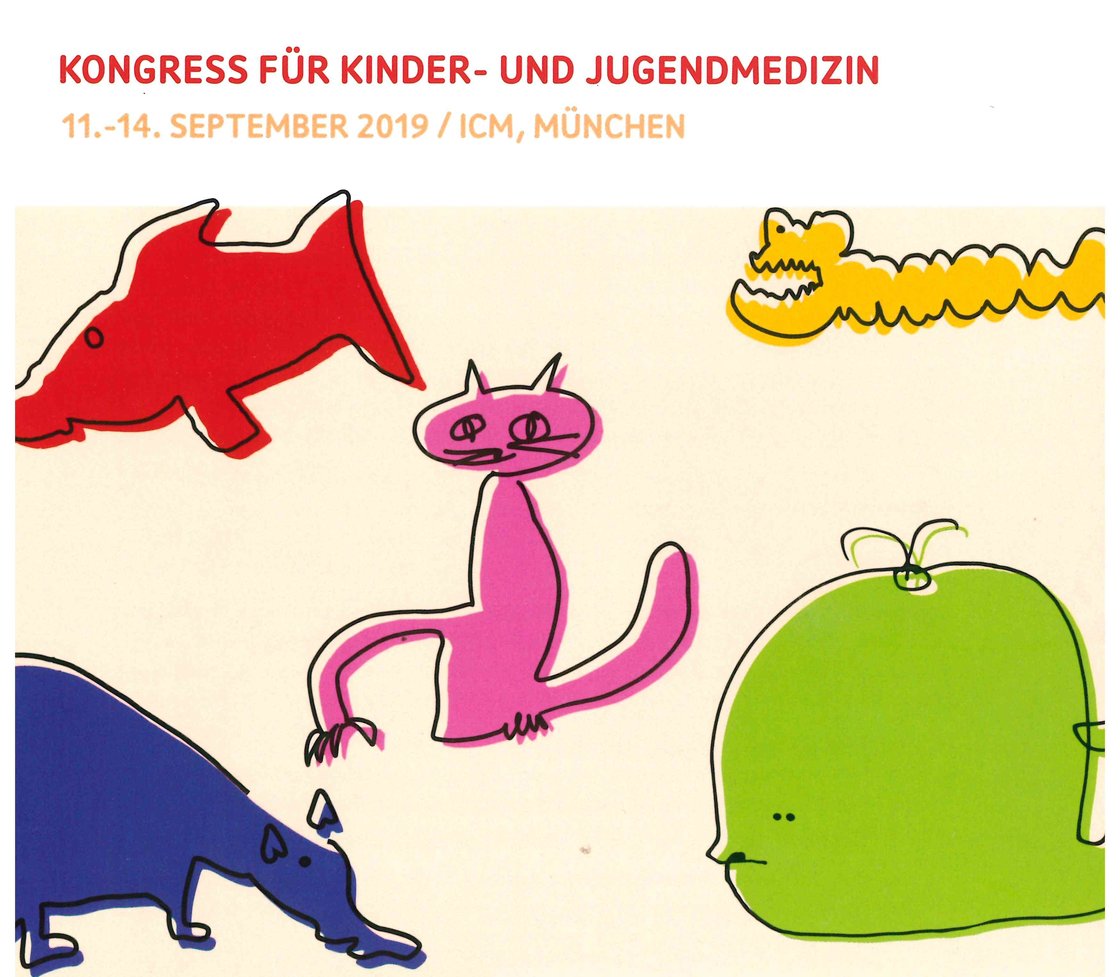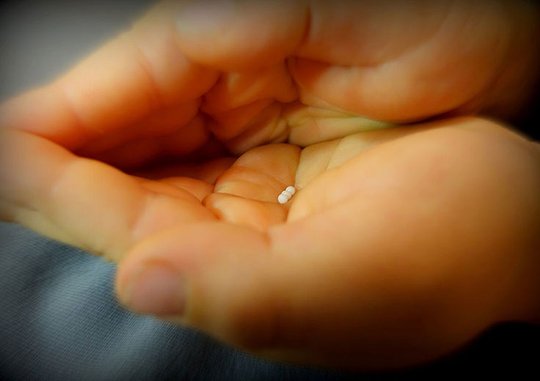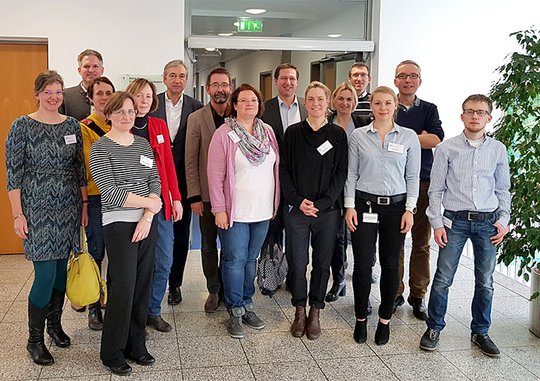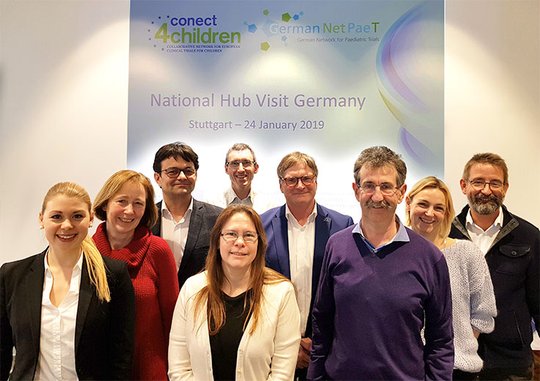
First site open for patient recruitment into ‘Kawasaki Disease Coronary Artery Aneurysm Prevention trial (KD-CAAP)’ study
The first site is open to recruitment into one of the three inaugural studies which will be utilising the infrastructure and resources of the conect4children network
The IMI conect4children (c4c) consortium are pleased to announce that the first site is now open for the ‘Kawasaki Disease Coronary Artery Aneurysm Prevention trial (KD-CAAP)’ study as of 28 September 2020 at Great Ormond Street Hospital NHS Foundation Trust.
Kawasaki disease is a disease where arteries, particularly the coronary arteries in the heart, become inflamed, sometimes causing irreversible heart damage, heart attacks or even death. To prevent heart damage, Kawasaki disease in children and young people must be recognised by clinicians early, and promptly treated with anti-inflammatory medicines. This study will assess the effectiveness of adding steroids to standard treatment in children with Kawasaki Disease, and aims to recruit 262 children as part of the study. The study will continue to open in approximately 60 sites in 15 countries across Europe.
In April 2019, c4c announced the selection of its first portfolio of pan-European paediatric studies, aimed at advancing the understanding of high priority medicines commonly used in babies, children and young people in Europe. The KD-CAAP study is the first of the proof of viability studies, to begin recruitment. The other academic studies, shown below, plan to begin recruitment later this year, despite initial delays due to the COVID-19 pandemic.
- TREOCAPA Paracetamol in Premature Babies: will assess the effectiveness of paracetamol on the closure of the ductus arteriosus and the increase in surviving without severe morbidity of extreme premature infants. The study aims to recruit around 800 babies in 17 European countries. (Lead: Prof. Jean-Christophe Roze of INSERM, a public research organization in Paris, France entirely dedicated to human health)
- cASPerCF Prospective validation and clinical evaluation of a new posaconazole dosing regimen for children and adolescents with cystic fibrosis and Aspergillus infection. The study will assess the dose of posaconazole in children and young people with Cystic Fibrosis and Aspergillus infection and aims to recruit 135 children as part of the study (Lead: Prof Adilia Warris of the MRC Centre for Medical Mycology, University of Exeter, Sponsor: Ospedale Pediatrico Bambino Gesu (OPBG), a children’s hospital in Rome, Italy).
These studies will be the first to leverage the scientific quality, rigor and capabilities of the c4c network, a global consortium of more than 30 academics, 10 industry partners and a network of more than 500 affiliated partners. The research collaboration will be used to build and implement a pan-European paediatric clinical trial network whose goal is to improve the European paediatric clinical trial infrastructure in order to facilitate the development of new, innovative and safer medicines for children in Europe.
Paul Brogan, KD-CAAP study sponsor, spoke about the value of the c4c consortium:
“c4c has provided a paediatric network to deliver clinical trials for children in the UK and Europe.This vision will be transformative for more efficient and rapid delivery of clinical trials in paediatrics,[which is] much-needed. In the future it will also facilitate better working with pharma, thus allowingstudy of novel therapeutics for children.”
More information about each of the studies is available here:
KD-CAAP
TREOCAPA
cASPerCF

Kongress für Kinder- und Jugendmedizin 2019
Vom 11. bis 14. September findet im Internationalen Congress Center München der Kongress für Kinder- und Jugendmedizin statt. Die Tagung wird getragen von der Deutschen Gesellschaft für Kinder- und Jugendmedizin (DGKJ), der Deutschen Gesellschaft für Sozialpädiatrie und Jugendmedizin (DGSPJ), der Deutschen Gesellschaft für Kinderchirurgie (DGKCH), dem Berufsverband Kinderkrankenpflege Deutschland (BeKD) und der Gesellschaft für Neuropädiatrie (GNP).
Hauptthemen:
- Mehrfachbehinderte Kinder in der stationären Versorgung. Die stationäre Betreuung komplex-kranker Kinder mit Akutkomplikationen ist eine häufige Herausforderung, die interdisziplinäres Management erfordert. Operative und konservative Aspekte der Medizin sind gleichermaßen betroffen.
- Epidemiologische Forschung undepidemiologische Daten können Evidenz für Paradigmenwechsel in der Pädiatrie bringen. Dieses Wissen ist im Alltag für Kinder- und Jugendärzte von großer Bedeutung.
- Innovative Diagnostikverfahren: Die Pädiatrie hat in den letzten Jahren enorm von Neuerungen profitiert – sowohl in der Bildgebung als auch in der Genetik. Der Kongress wird die wichtigsten Entwicklungen präsentieren.
Neben dem fachlichen Programm wird es viele Gelegenheiten für persönliche Begegnungen und Gespräche geben, sei es im Rahmen des Konzerts des Orchesters der Deutschen Kinderärzte, bei der Kongressparty oder auf den Get Togethers.
Das gesamte Programm und weitere Informationen finden Sie auf www.dgkj2019.de

c4c Consortium selects inaugural Research Portfolio
We are delighted to announce the selection of the c4c consortium’s first portfolio of pan-European paediatric studies aimed at advancing the understanding of high priority medicines commonly used in babies, children and young people in Europe. The four inaugural studies will be conducted by academic institutions, in addition to three or four studies by industry partners, covering different diseases and age groups.
The selected studies will implement new ways to:
- Ensure that the experiences and preferences of children and young people are reflected in clinical trial design and minimise the burden of their participation in research
- Employ cutting-edge science and implement new, innovative ways to evaluate medicines
- Demonstrate the value of collaborating across 18 countries, building on a public-private partnership that blends expertise from leading industry and academic partners.
For more information please read the full press release.
https://conect4children.org

First plenary meeting of GermanNetPaeT paediatric study centres
Prof Matthias Schwab and Eva Neumann kindly welcomed 13 representatives of the paediatric study centres affiliated with GermanNetPaeT in Stuttgart to set the course for future cooperation.
After a general introduction into the c4c project the steps taken within GermanNetPaeT until this day were reported. The following fruitful exchange addressed the active involvement of trial sites in creating more aligned processes and documents to be used throughout participating sites to facilitate procedures on all trial levels and to enhance overall trial quality.
The issue of establishing a central database on national level with basic information characterizing network members with regard to experience and capacity in paediatric clinical trials to improve efficacy of site selection processes was also raised and consensus was made.
The wish to contribute not only on German but also on European level through clinical and methodology expert advisory groups was encouragingly big within the group.
In summary the atmosphere was very positive and the engagement of site representatives was highly pleasing. Followup meetings within the defined tasks were agreed and a successful start of the cooperation was made.

C4c visit of the German Hub
The visit of the German Hub by Prof. Mark Turner, Scientific Coordinator of c4c and WP2 / WP7 Project Leader, and Carla Owen, WP 7 Project Manager, was a success.
Prof. Matthias Schwab, German Hub Leader, and Eva Neumann, German Hub Project Manager, gave an update on the work carried out in Germany in the last months since the official start of the European project in May 2018.
The main objective of this meeting was to bring together European and German project partners to dicuss and push forward the future work of the German Hub with regard to the upcoming non-industry sponsored proof of viability trials that will put c4c to the test within the next 4-5 years. The National Hubs play a major role in improving efficiency of planning, preparing and conducting paediatric clinical trials. Consensus was made that procedures on national level will be established and aligned, supporting and harmonised documents plus consultancy services will be created, training and education as well as patient and parent involvement will be fostered.
